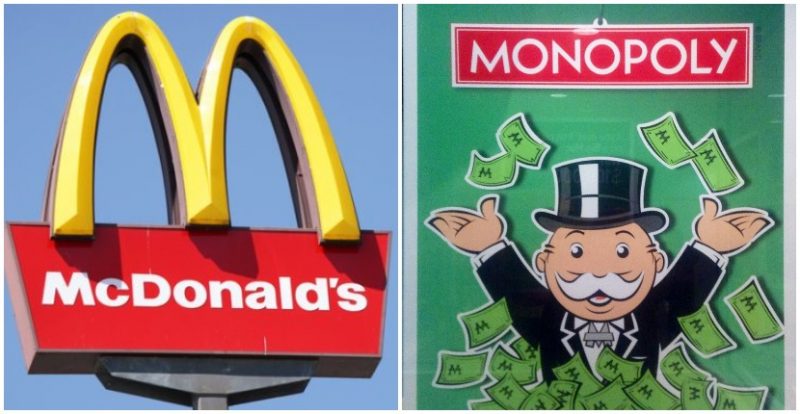Did you ever fancy getting rich? Jerome Jacobson certainly did, and he found his way to riches by making other people rich. It all started in 1989, when Jacobsen, an ex-cop who had landed a high-flying job managing security for a nondescript-sounding printing company, realized that he had found an easy way to make a bit on the side. And what a bit it turned out to be!
In the 1980s, Jacobson was hired to oversee printing operations at Simon Marketing, the lucrative printing operation which had won the multi-million-dollar contract to produce the rolls of tickets for McDonalds’ Monopoly game.
The game, which gave out winning tickets with prizes ranging from $1 million to luxury cars to gaming consoles in fast food meal packaging, proved incredibly popular with customers. McDonald’s had struck big with their marketing drive. It just so happened that Jerome Jacobsen struck big too.
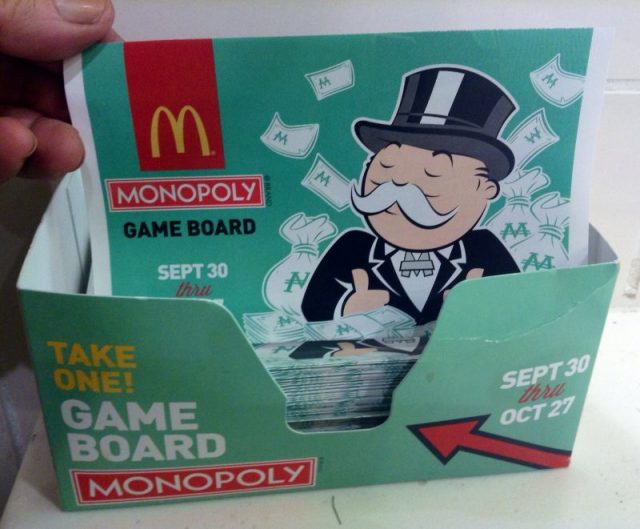
Jerome was in charge of the whole security process for the winning tickets, from overseeing the printing to delivering the winning pieces to the depot and distributing them at random into fast-food packaging. He earned a solid wage and had access to a generous expense account which he used hard, racking up flights, drinks, and expensive meals. Jerome was a man who liked the thrill of the high life.
He started stealing, according to AJC, because he just wanted to find out if he could get away with it. It turned out that he could. In 1989, at a family gathering, he gave his step-brother a winning game piece with a value of $25,000 which he had managed to lift out of the production process.
Not long after that, the germ of the scheme which would come to dominate his life was born. A local man asked if Jerome could arrange a prize for him. Jerome said he could, but it would look suspicious for someone close to him to win. His friend arranged that a distant acquaintance would claim the prize, so no connection could be traced. Jerome agreed and sold his friend a winning ticket worth $10,000 for $2000.
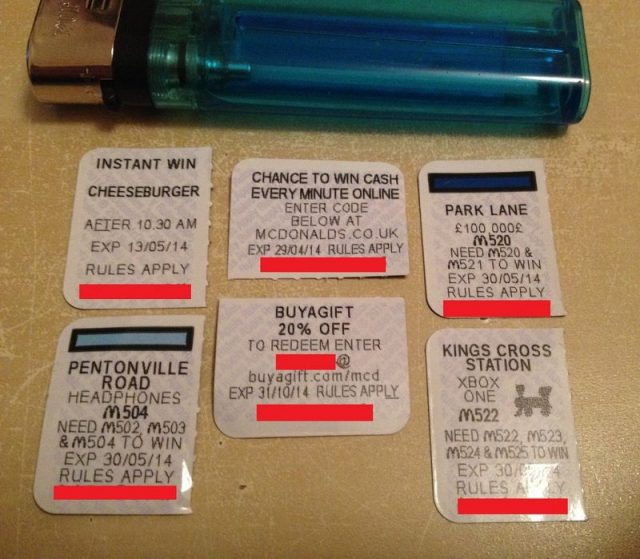
In 1995, Jerome was struck with what he saw as an attack of conscience – but not in the way you might think. The printer was supposed to choose a McDonald’s factory at random to take the winning pieces. When a factory in Canada was chosen, Jerome claimed that company executives chose to re-run the draw, ordering Jerome to make sure that no prizes never went north of the USA.
“I knew what we were doing in Canada was wrong,” said Jerome, according to the Daily Beast. “Sooner or later, somebody was going to be asking questions about why there were no winners in Canada.”
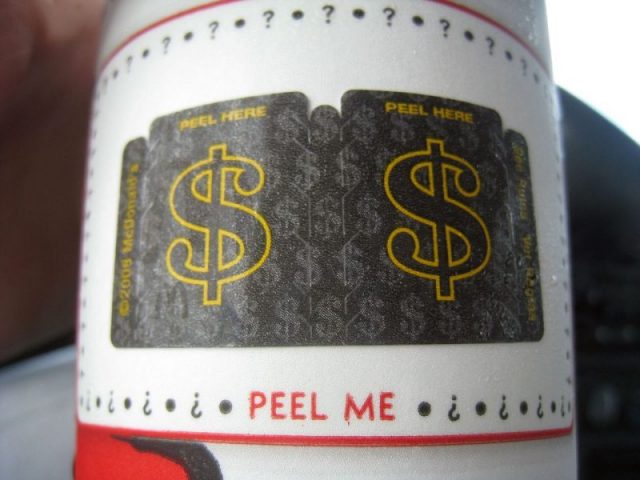
Shortly after this incident, fate handed Jerome his own winning ticket – an envelope full of tamperproof security seals, accidentally sent to him from the company’s Hong Kong supplier. Jerome, in charge of delivering the sealed envelopes full of pieces, needed no other tools else to seriously revisit his scheme.
For security, Jerome was accompanied on his delivery runs by a female auditor. He carried the sealed envelope of winning tickets in a secret security vest of his own design. That first time, he gave the auditor the slip by visiting the men’s bathroom. Once there, he stole a $1 million winning piece, resealed the envelope with a new seal, and carried on his journey.
It was easy. It was exciting. Jerome passed more winners on to acquaintances for substantial cuts. All he needed was an accomplice to help him find new, seemingly unconnected recruits for his scheme. This, as may be imagined, was not difficult.
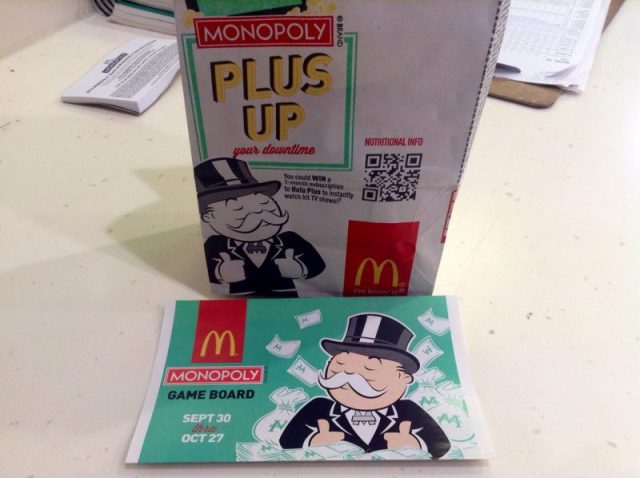
By the time the FBI got involved, the scheme had several people, including his step-brother, working hard claiming prizes and helping others to do so. Jerome was fabulously rich, flying from place to place, stealing tickets and passing them on through his network. That was when an anonymous tip-off prompted the FBI investigation which brought the whole house of cards crashing to the ground.
Special Agent Richard Dent, based in Jacksonville, Florida, began the investigation with a simple wiretap on Jerome’s phone, but it wasn’t long before he realized that the conspiracy went way, way beyond one or two people.
To catch up with the conspirators, Dent worked with McDonald’s to set up a massive, multi-million-dollar sting operation. They would run a full-scale game, loaded with top prizes. Then they would tail Jacobson and catch him in the act of handing over tickets.
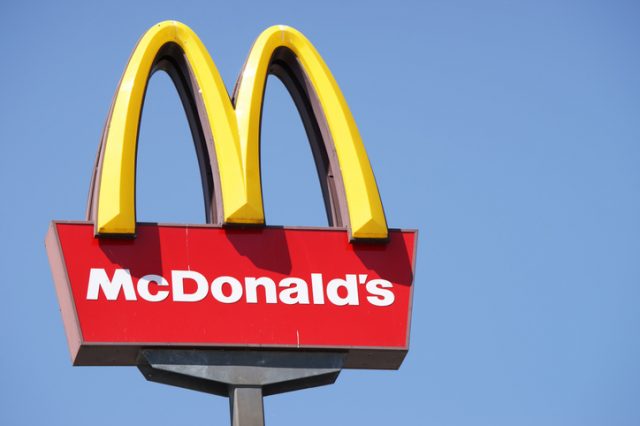
The company, which had had a tough year on the marketing front, was led at the time by CEO Jack Greenberg. Greenberg had a difficult choice – if he agreed to Dent’s plan he would be knowingly running a rigged game, leaving the company open to potential lawsuits. However, if the games were already rigged as Dent suspected, then, morally, there was only one thing he could do. “I would do it again,” Greenberg told media after the operation, according to the Daily Beast. “What we found out allowed the FBI to complete its investigation.”
Related Video: Swing Wing Toy Commercial (1960s)
And so it did. It would have been the trial of the century, but for the incredibly unfortunate timing. The court case opened on September 10, 2001, one day before the sad and fateful events of 9/11.
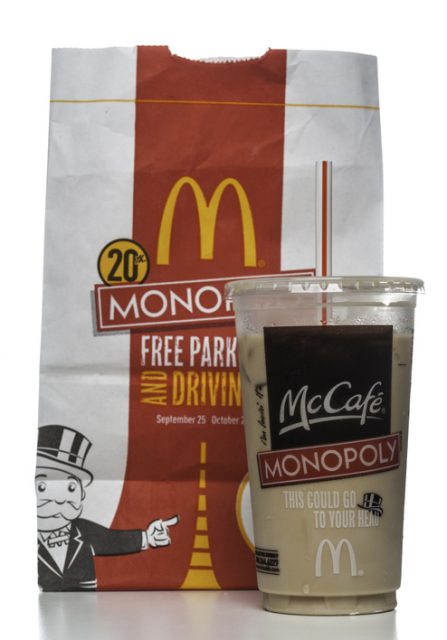
Due to this timing – and rightly so – the case became a much more low-profile event than it otherwise might have been, and today not as many people have heard of it as might be expected. Jerome Jacobson confessed. He was guilty and he knew it. His four fixers, who had found willing co-conspirators to take corrupt prize-money, were sentenced to a year and a day each in prison.
In all, over 50 people were convicted of some kind of involvement in the massive scam. Jacobson himself was convicted of fraud worth upward of a staggering $24 million. He was convicted to three years and one month in prison and ordered to pay back $12.5 million. In addition, the government impounded everything he owned.
The dust has long settled on this incredible case. Richard Dent, the determined FBI man who settled the operation, has retired. McDonald’s pledged to make sure everyone would have another chance of winning big and ran a number of new, big winning games to make up for their lapse. They also got a new company to run their printing.
As for Jerome, he was last reported to be living quietly in Georgia by the Daily Beast. One has to wonder what was going through his head when his scam was at its peak. For all its illegality, it was a brilliant scheme, simple, effective, and hard to beat. Want fries with that?
